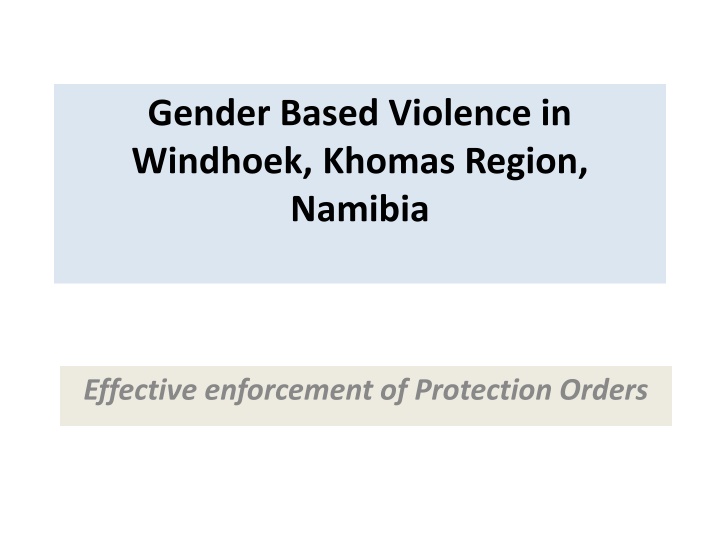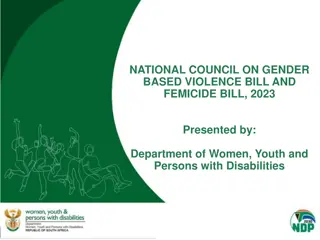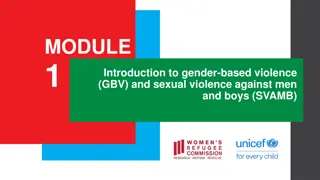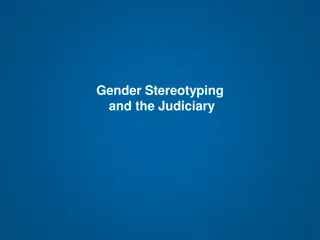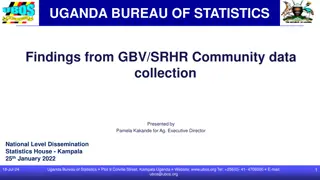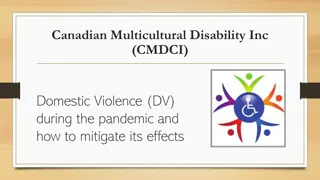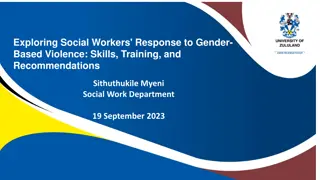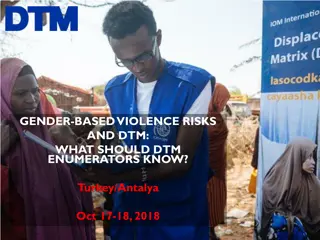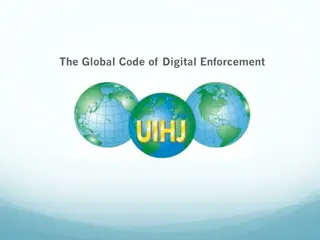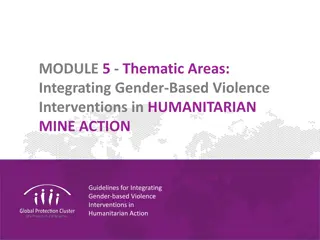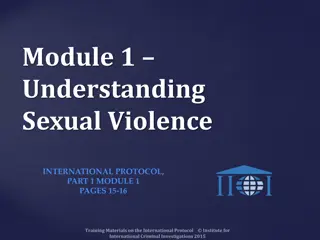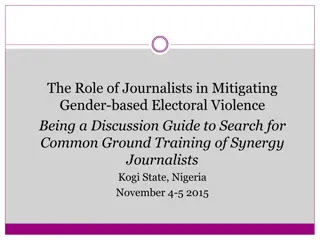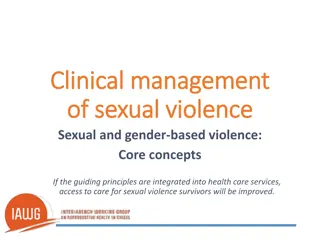Addressing Gender-Based Violence in Windhoek, Namibia: Enhancing Protection Order Enforcement
Exploring the challenges and shortcomings in enforcing protection orders related to gender-based violence in Windhoek, Khomas Region, Namibia. The team members from various health and public service sectors collaborate to tackle issues like complicated application procedures, delays in serving protection orders, and lack of clear procedures for protecting children. The critique points out areas for improvement to better support victims and ensure effective enforcement of protection orders.
Download Presentation

Please find below an Image/Link to download the presentation.
The content on the website is provided AS IS for your information and personal use only. It may not be sold, licensed, or shared on other websites without obtaining consent from the author.If you encounter any issues during the download, it is possible that the publisher has removed the file from their server.
You are allowed to download the files provided on this website for personal or commercial use, subject to the condition that they are used lawfully. All files are the property of their respective owners.
The content on the website is provided AS IS for your information and personal use only. It may not be sold, licensed, or shared on other websites without obtaining consent from the author.
E N D
Presentation Transcript
Gender Based Violence in Windhoek, Khomas Region, Namibia Effective enforcement of Protection Orders
Team members Dr Mitonga UNAM School of Public Health Ms. Kahitu City of Windhoek Health Services Mr. Usurua Ministry of Health Planning Ms. Kaunatjike WHO Namibia Health Promotion
Context and importance of problem Year Indecent Assault Grievous Bodily Harm(GBH) Attemp ted rape Rape Murder Total 2013 111 10 602 238 1 050 351 12 352 2012 76 6 840 0 1 117 275 8 408 2011 13 6 414 20 1 084 293 7 824 2010 89 10 025 262 1 072 322 11 770 2009 108 10 052 218 1 036 350 11 765
Critique of policy option Applications forms are complicated to fill Clerks are unable or unwilling to commission affidavits, many potential applicants are forced to visit both a magistrate s court and a police station, which slows down the process and creates additional obstacles for complainants There are no uniform procedures in dealing with protection order applications - some of the procedural innovations used in practice are inappropriate and carry the risk of discouraging deserving complainants In some cases a single application form is used to request protection orders against multiple respondents There is currently no uniform system for dealing with after-hours applications
Policy Critique High withdrawal of cases and high number of complainants disappear No clear procedure for protection of children once applications are made Delay in serving protection orders is a weak point in the chain of procedure which may put complainants at increased risk. At present 40% of interim protection orders are apparently being served ten days or more after being issued and 11% are being served only one month later. This is simply not good enough especially taking into account that half of those complainants have been threatened with murder.
Consequences of the delays Increased exposure to the violence and abuse Some women become suicidal and are stigmatized Societal consequences such as children being orphaned, dysfunctional families, and disruption of social support systems
Key Recommendations for Action Simplify the application forms and the procedure by making interim orders final, since the procedure is not well understood Implement standard procedure for making protection orders available after-hours and on weekends which at present seems to be based only on the goodwill of individual officials. Intensify training for the relevant officials, particularly clerks of court who usually assist complainants in completing the application forms. Give urgent attention to the service of protection orders on respondents
Key Recommendation continue Review current legislation and regulations particularly to address the need for more safeguards for children and for complainants who approach the court and then disappear. Avail more counselling services for complainants, including assistance with exit strategies for leaving a violent relationship such as referrals to shelters and advice on divorce and maintenance procedures.
Okuhepa Tuatotela Mukwayi Thank you Merci Beaucoup Siyabonga Re a leboga Obrigado Baie Dankie
